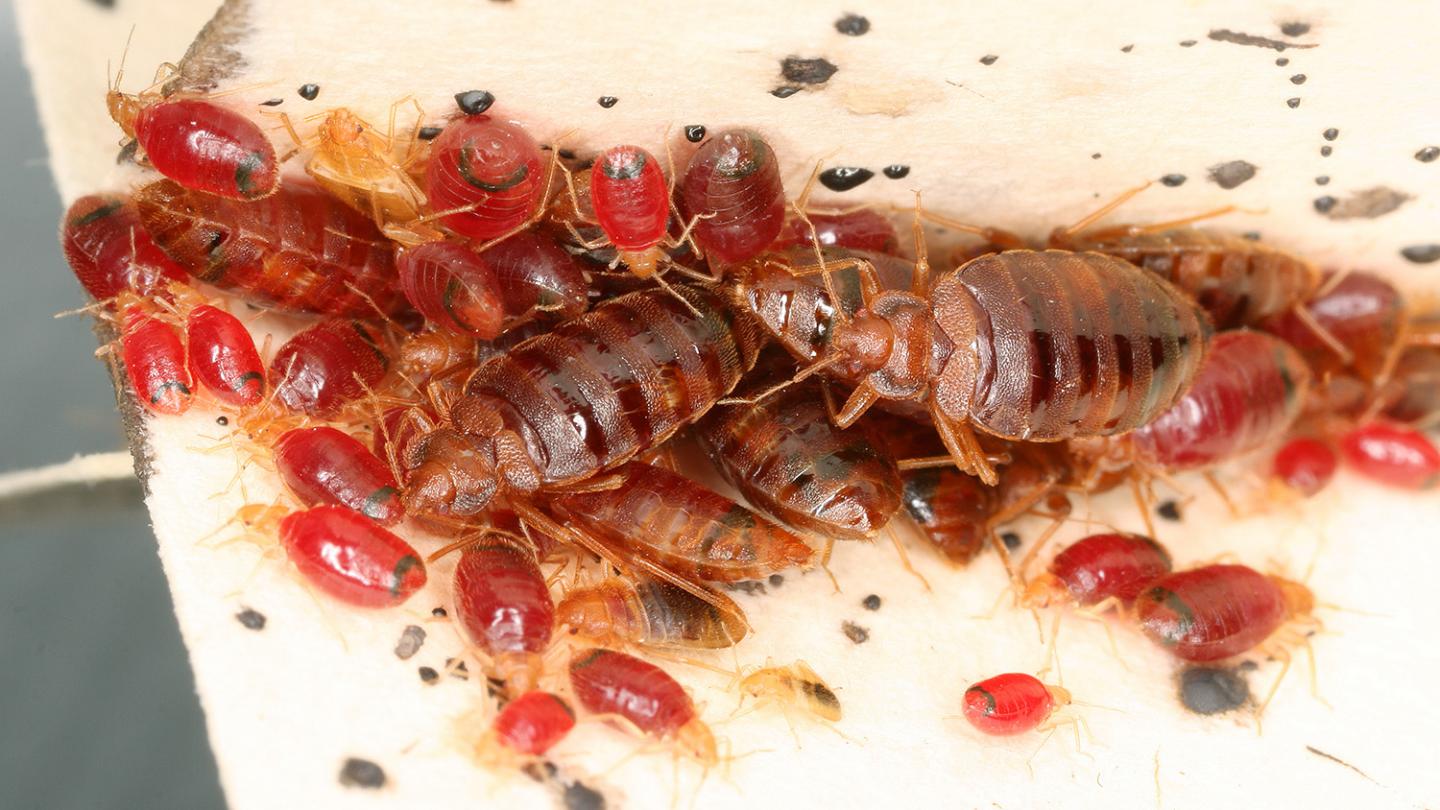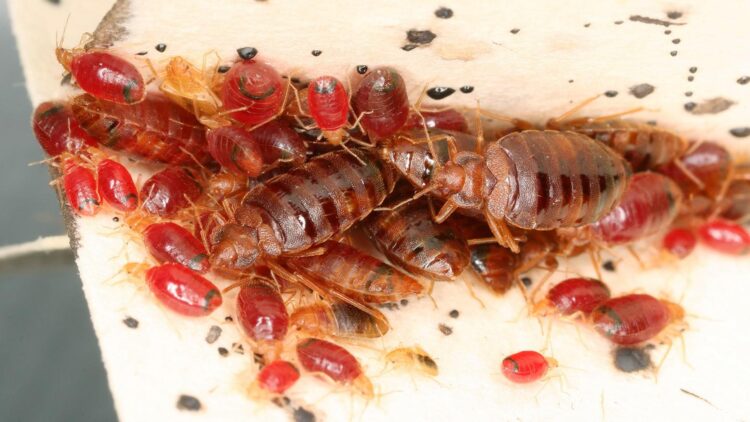
Credit: Benoit Guenard
Homes infested by bed bugs appear to have different bacterial communities – often referred to as microbiomes – than homes without bed bugs, according to a first-of-its-kind study from North Carolina State University. In addition, once bed bug infestations were eradicated, home microbiomes became more similar to those in homes that never had bed bugs. The findings could be an important step in lifting the veil on the factors involved in indoor environmental quality and how to improve it.
Microbes can affect indoor air quality. So NC State entomologists Coby Schal and Madhavi Kakumanu wanted to learn more about the microbiomes of bed bugs, whether bed bugs can shape the microbial community in homes they infest, and whether eliminating bed bugs changes the microbiome of homes that were once infested.
The study, held in an apartment complex in Raleigh, compared the microbiomes of bed bugs with the microbiomes in the household dust of infested homes as well as the microbiomes in apartments that had no bed bugs. Nineteen infested homes were studied over the course of four months; seven were treated with heat to eliminate bed bugs after the initial sample was taken, while 12 infested homes were treated after one month. These homes were compared with 11 homes that had no bed bugs.
The results showed similarities between the microbiomes of bed bugs and the dust-associated microbiomes of infested homes, mostly through the presence of Wolbachia, a symbiotic bacterium that comprises the majority of the bacterial abundance in bed bugs. Bed bug and infested home microbiomes differed significantly from the microbial communities of uninfested homes.
“There is a link between the microbiome of bed bugs and the microbiome of household dust in bed bug infested homes,” said Schal, the Blanton J. Whitmire Distinguished Professor of Entomology at NC State and co-corresponding author of the paper. “No previous study has reported the impact of chronic pest infestations on indoor microbial diversity.”
The study also showed that, after bed bugs were eliminated, infested home microbiomes gradually became more like those in homes without bed bugs.
“The elimination of the bed bugs resulted in gradual shifts in the home microbial communities toward those of uninfested homes,” Kakumanu, an NC State research scholar in Schal’s lab and co-corresponding author of the study, said. “This paper is the first experimental demonstration that eliminating an indoor pest alters the indoor microbiome toward that of uninfested homes.”
“Bed bug infestations are problematic in many homes in both developed and developing countries,” Schal said. “There is a critical need to investigate infestations from the perspective of indoor environmental quality, and this paper represents a first step toward this end.”
###
The study appears in Science of the Total Environment. Funding for the work came from NC State’s Blanton J. Whitmire endowment, as well as the U.S. Department of Housing and Urban Development Healthy Homes program (NCHHU0017-13, NCHHU0053-19), the Alfred P. Sloan Foundation (2013-5-35 MBE) and the National Science Foundation (DEB-1754190). Seed funds came from NC State’s Center for Human Health and the Environment (CHHE, P30ES025128), funded by the National Institute of Environmental Health Sciences.
Note to editors: An abstract of the paper follows.
“Bed bugs shape the indoor microbial community composition of infested homes”
Authors: Madhavi L. Kakumanu, Alexis M. Barbarin, Richard G. Santangelo and Coby Schal, North Carolina State University: Zachary C. DeVries, University of Kentucky
Published: July 7, 2020 in Science of the Total Environment
DOI: 10.1016/j.scitotenv.2020.140704
Abstract: Indoor pests, and the allergens they produce, adversely affect human health. Surprisingly, however, their effects on indoor microbial communities have not been assessed. Bed bug (Cimex lectularius) infestations pose severe challenges in elderly and low-income housing. They void large amounts of liquid feces into the home environment, which might alter the indoor microbial community composition. In this study, using bed bug-infested and
uninfested homes, we showed a strong impact of bed bug infestations on the indoor microbial diversity. Floor dust samples were collected from uninfested and bed bug-infested homes and their microbiomes were analyzed before and after heat interventions that eliminated bed bugs. The microbial communities of bed bug-infested homes were radically different from those of uninfested homes, and the bed bug endosymbiont Wolbachia was the major driver of this difference. After bed bugs were eliminated, the microbial community gradually shifted toward the community composition of uninfested homes, strongly implicating bed bugs in shaping the dust-associated environmental microbiome. Further studies are needed to understand the viability of these microbial communities and the potential risks that bed bug-associated microbes and their metabolites pose to human health.
Media Contact
Coby Schal
[email protected]
Original Source
https:/
Related Journal Article
http://dx.





